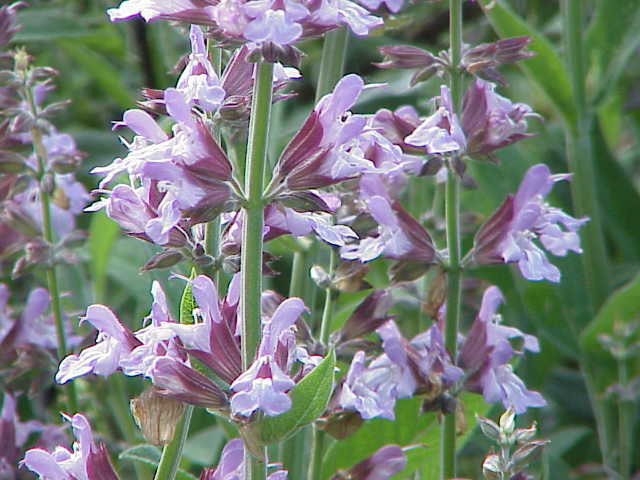Sage (Salvia officinalis) is an aromatic herb known for its culinary uses, medicinal properties, and historical significance. It has a wide range of applications and health benefits. Here’s an exploration of the many uses and health benefits of sage:
Culinary Uses:
- Seasoning: Sage is a popular culinary herb used to flavor a variety of dishes, especially in Mediterranean and Italian cuisine. Its warm, earthy, and slightly peppery flavor complements meats, vegetables, and pasta dishes.

- Stuffing: Sage is a key ingredient in traditional Thanksgiving stuffing or dressing. Its robust flavor pairs well with poultry and is a staple in holiday recipes.
- Sauces: It is used to add depth and flavor to sauces and gravies, particularly in dishes like chicken with sage and white wine sauce.
- Herb Butter: Sage-infused butter can be spread on bread or used to flavor roasted meats, vegetables, and pasta.
- Tea: Sage leaves can be steeped to make sage tea, which is believed to have various health benefits.
Medicinal Uses:
- Cognitive Function: Sage has a long history of use as a memory-enhancing herb. Some studies suggest that sage may improve cognitive function and memory, especially in older adults.
- Anti-Inflammatory: Sage contains compounds with anti-inflammatory properties, which may help reduce inflammation and relieve symptoms of conditions like arthritis.
- Digestive Health: Sage tea is sometimes used to aid digestion and alleviate gastrointestinal discomfort.
- Sore Throat Relief: Sage tea or gargling with sage-infused water can help soothe sore throats and alleviate symptoms of colds and respiratory infections.
- Antioxidant Properties: Sage is rich in antioxidants, which can help protect the body against oxidative stress and free radicals.
Traditional and Alternative Medicine:
- Herbal Medicine: In traditional herbal medicine, sage has been used to address various health issues, including digestive problems, menstrual discomfort, and sore throats.
- Aromatherapy: Sage essential oil is used in aromatherapy to promote relaxation, relieve stress, and improve mental clarity.
Gardening and Landscaping:
- Ornamental Plant: Sage is a popular choice in gardens and landscaping for its attractive gray-green leaves and vibrant purple flowers. It’s also drought-tolerant and low-maintenance.
- Pest Repellent: Growing sage in your garden can help repel certain pests due to its strong aroma.
Cautions:
- While sage is generally safe for culinary and occasional medicinal use, excessive consumption of sage tea or supplements should be avoided.
- Pregnant and breastfeeding women should consult with a healthcare provider before using sage in medicinal or supplement forms.
- If you have a known allergy to other plants in the mint family (Lamiaceae), such as basil or oregano, you may be at risk of a sage allergy.
Sage is a versatile herb with a rich history of culinary and medicinal uses. Whether you’re cooking a delicious meal, seeking potential health benefits, or simply enjoying its fragrance in your garden, sage is a valuable addition to various aspects of daily life.











